icon
Poor gluteal strength has been associated with various common injuries such as low back pain, hamstring injuries and knee pain. It is also important for post-operative rehab, lower leg stability and injury prevention. Weakness of the gluteal muscular region may contribute to lower extremity injuries by influencing joint-loading patterns and lower extremity control.
There are 3 muscles that make up the glutes: gluteus maximus, gluteus medius, and gluteus minimus. The gluteus maximus is the largest of all three and also the most superficial, producing the shape of the buttocks. Due to its large size, it’s able to generate a large amount of force especially during climbing, stairs and running. Its main action is to extend the hip (move the leg backwards), and to externally rotation the hip joint (turn the hip outwards).
Gluteus medius is located on the outer aspect of the upper buttock and is an important muscle in walking, running and single leg weight bearing exercises. This muscle’s main action is to abduct the hip (moves the leg sideways).
Gluteus minimus is the smallest of all three gluteal muscles and lies beneath the other two. This muscle shares a similar role with gluteus medius, namely stabilising the pelvis during walking and single leg activities. Its action is that it’s a primary internal rotator of the hip (turns the hip inwards).
As with any warm up, we need to warm up the muscles we are going to be working on during a training session. Doing glute activation exercises will help those who are overly dominant through their quadriceps and hamstrings, as it will better engage their glutes throughout their session. Another benefit of doing specific glute activation exercises prior to exercise is for injury prevention, specifically as glute medius and minimus have critical roles in controlling pelvic and knee stability.
Try adding these exercises to your glute activation routine before your workout!
Banded crab walks
Banded glute bridges
Banded side-lying hip adbuction
Book an appointment at Coast Sport by calling 4356 2588 or book online via the button below.
Thanks to Coast Sport Physiotherapist Laura for preparing this blog. You can find out more about Laura here.

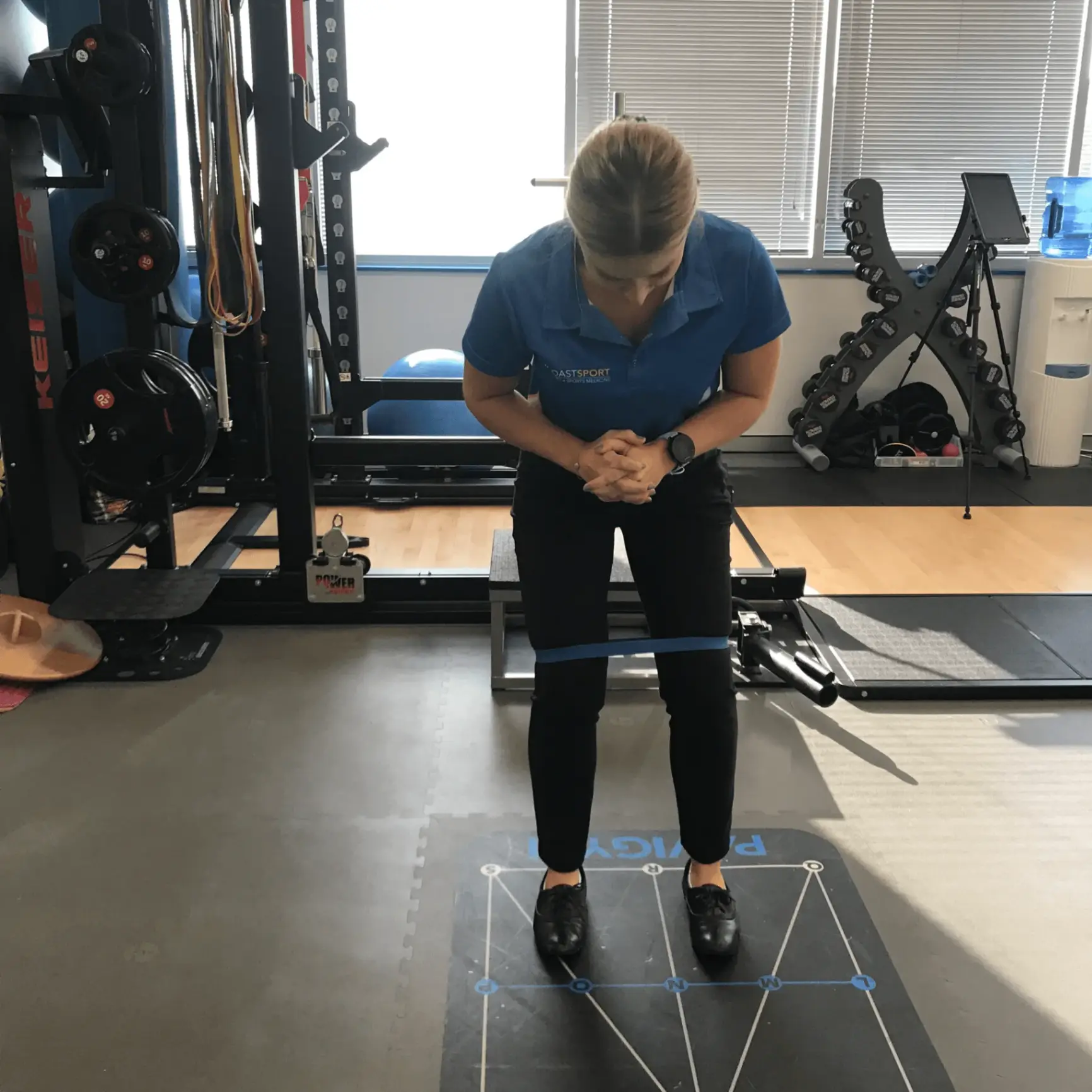
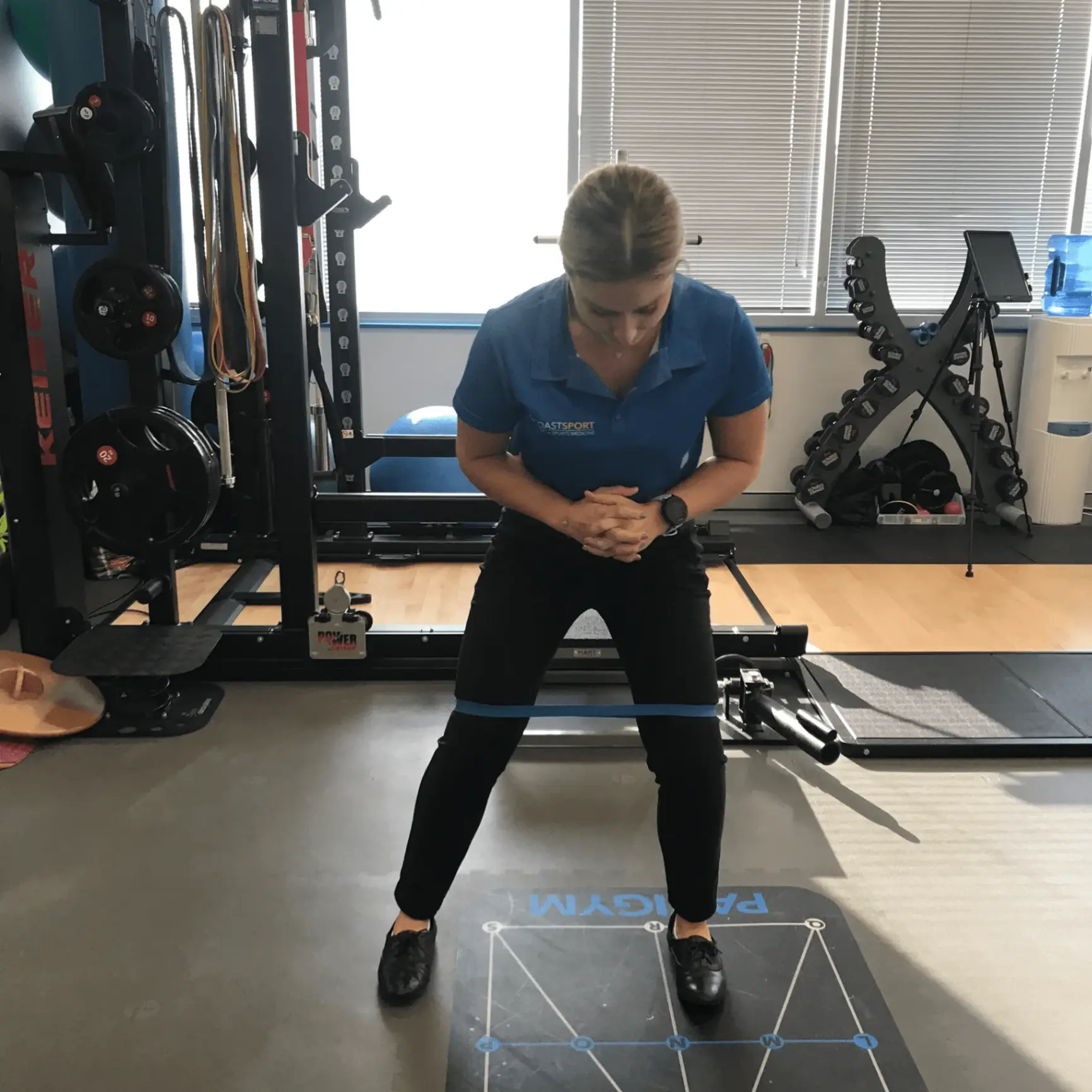
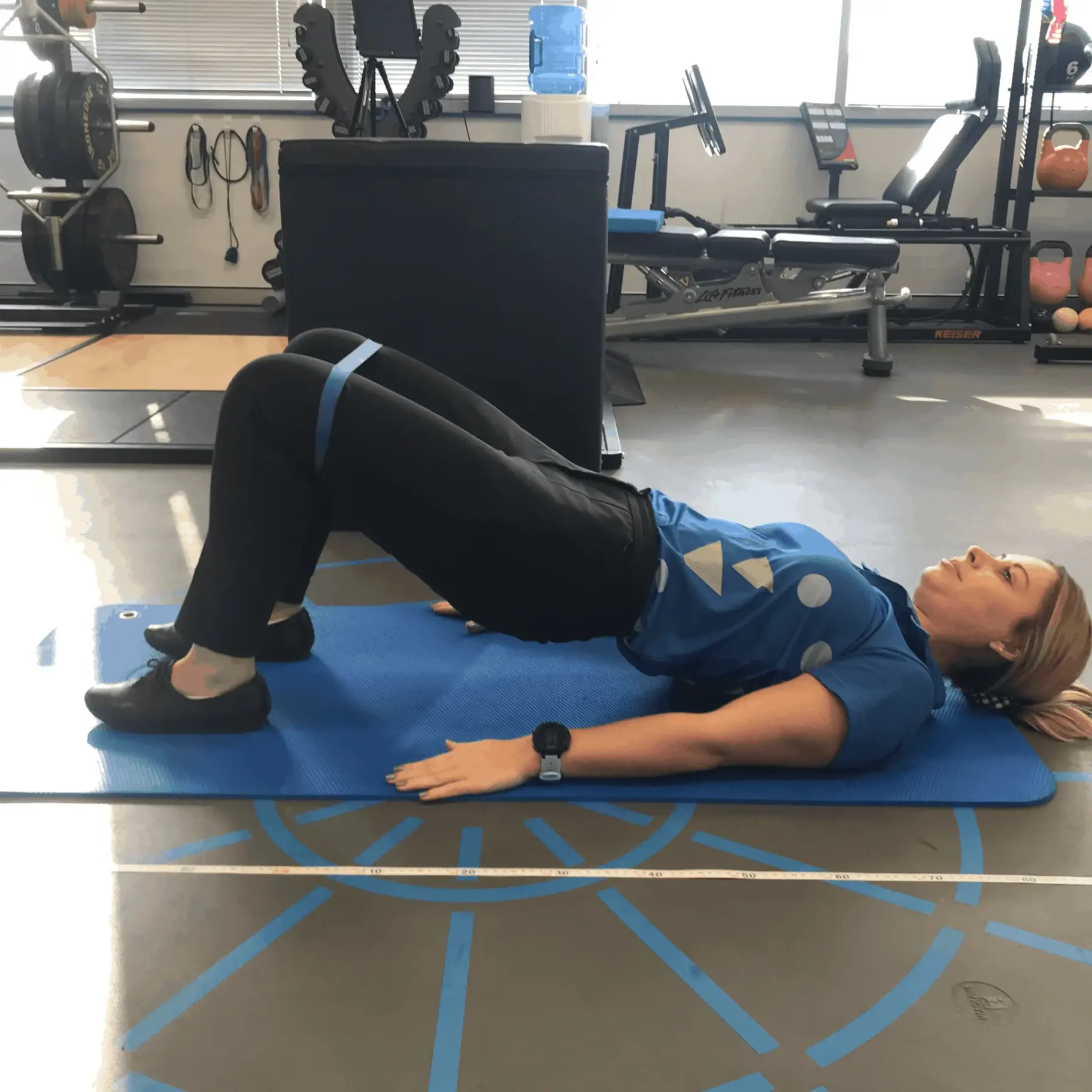
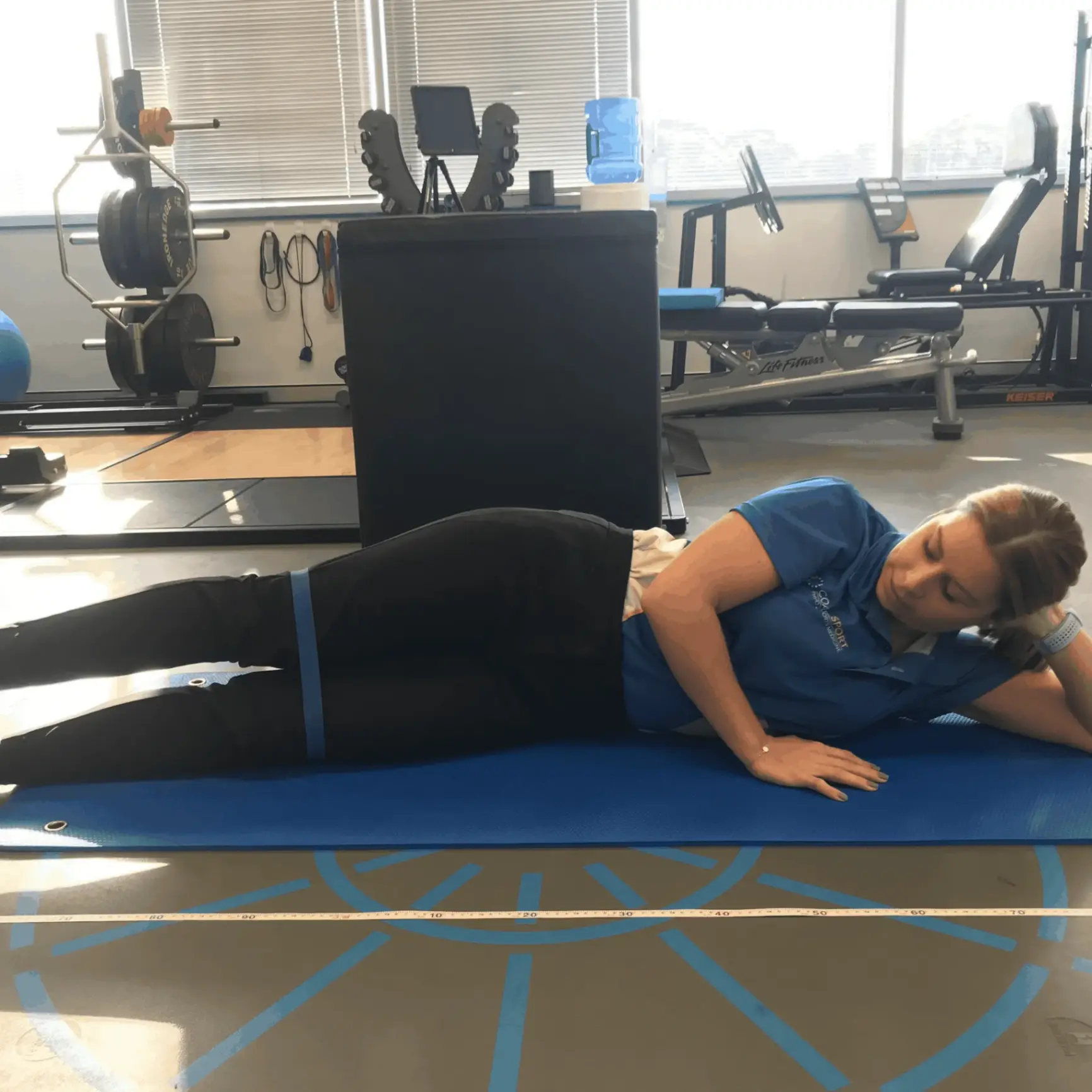
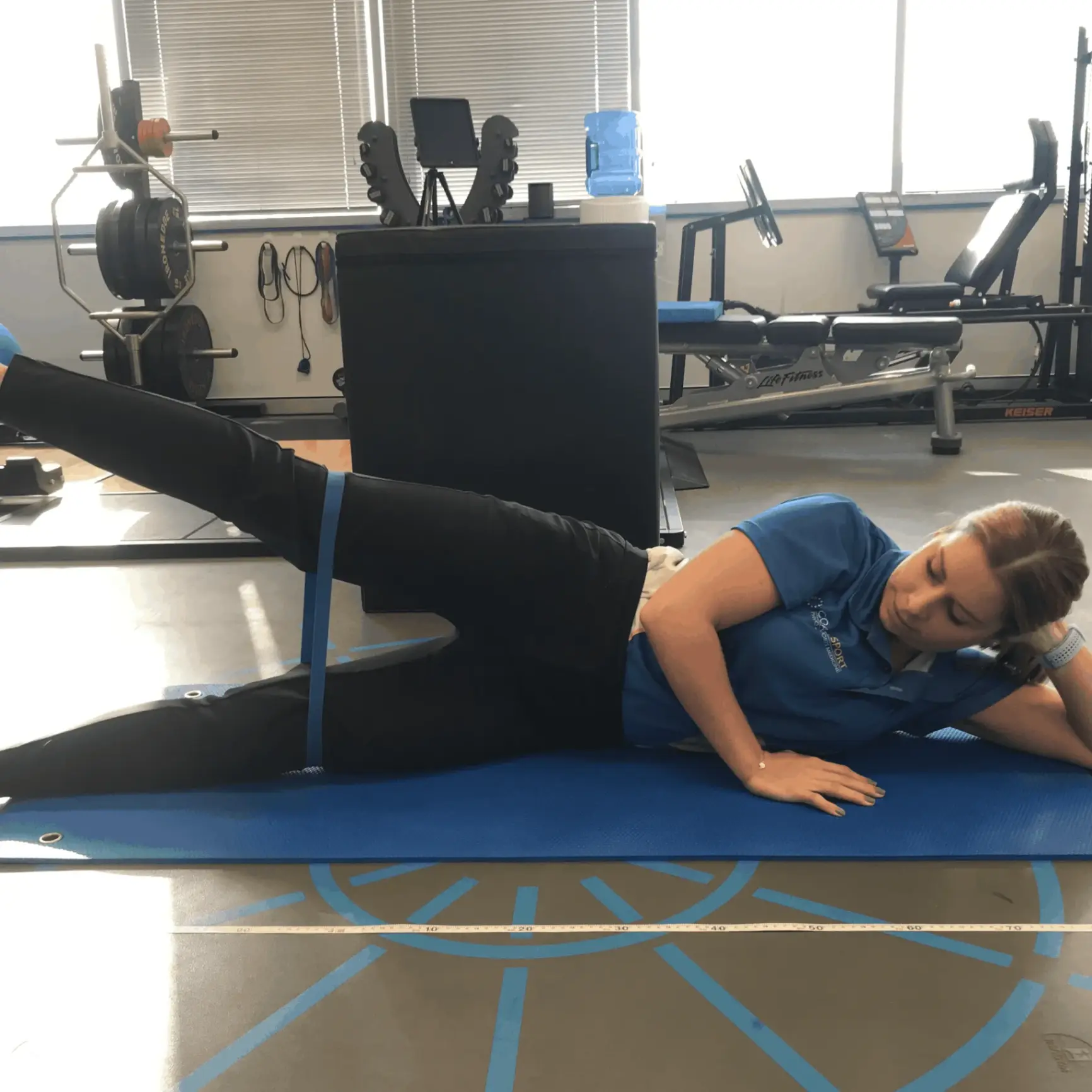



 Helping the Central Coast Feel Well, Move Well and Perform Well!
Helping the Central Coast Feel Well, Move Well and Perform Well!